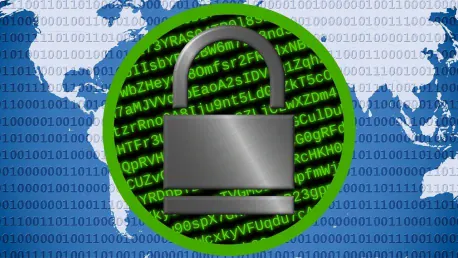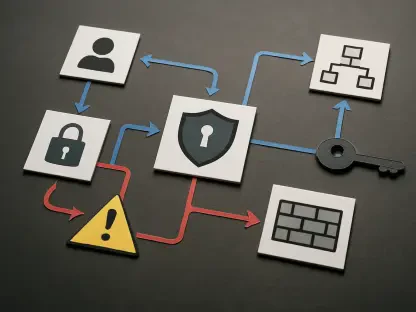In an age where digital footprints are nearly impossible to avoid and personal information is easily accessible, a significant number of Americans are becoming increasingly concerned about their online privacy. According to recent research by NordVPN and Incogni, 152 million Americans now express a desire to delete their personal data from the internet, representing a noticeable increase from previous years. On a global scale, 35% of people share this sentiment, with the United States and Canada emerging as leaders in this growing trend. These findings underscore a mounting anxiety over data privacy and a desire for greater control over one’s personal information.
Reasons Behind the Desire for Data Deletion
Fear of Data Misuse and Lack of Trust in the Internet
One of the primary reasons driving the desire to delete personal data online is the fear of data misuse. Individuals worry that third parties may collect, sell, or exploit their information in ways they cannot control. Nearly half of the survey respondents expressed concerns about potential hacking incidents, emphasizing that there are no meaningful reasons for their names and information to remain available online. Additionally, a significant portion of individuals reported lacking trust in the internet itself. In fact, 41% of respondents indicated that they do not have confidence in the security and privacy standards currently in place on the web.
This growing apprehension about data security reflects a broader erosion of trust in online platforms and services. The fear of identity theft, financial loss, and privacy invasions is pervasive. A fifth of the respondents expressed worries about manipulation by third parties, highlighting the manipulation risk that can come from the vast amounts of data collected online. With incidents like data breaches and unauthorized data sales becoming more frequent, individuals feel increasingly vulnerable. These concerns underscore the need for robust data protection measures and transparent privacy policies to rebuild trust in the digital ecosystem.
Concerns Over Financial Information and Social Media Presence
Americans are particularly anxious about their financial information, with 64% prioritizing its deletion. The sensitivity surrounding financial data stems from its potential misuse in fraudulent activities and identity theft. Unauthorized access to such information can have dire consequences, leading to financial loss and a compromised sense of security. The high level of concern reflects an acute awareness of these risks and a strong desire to safeguard financial privacy.
In addition to financial information, a notable proportion of individuals—31%—are worried about their old social media or dating profiles and embarrassing uploads. These concerns point to the long-lasting nature of online content and the potential reputational damage it can inflict. With digital footprints being virtually permanent, many people feel exposed and are seeking ways to regain control over their online presence. This anxiety is compounded by the difficulty of completely erasing old digital content, as many are unsure how to achieve thorough data deletion. Despite these concerns, 44% of Americans find themselves uncertain about the process of deleting their personal data, indicating a need for clearer guidelines and user-friendly tools.
Shifts in Attitudes Towards Data Privacy
Demand for Data Control and the Right to Be Forgotten
Marijus Briedis, CTO of NordVPN, notes a significant shift in public attitudes towards data privacy, highlighting that people now demand control over their personal data and the right to be forgotten. This evolving mindset marks a departure from previous eras where data collection was largely uncontested. Today’s users exhibit heightened awareness and assertiveness regarding their digital rights. With growing recognition of the potential misuse of personal data, there is a call for stronger regulations and technology solutions that prioritize user privacy. This shift suggests that future generations may spearhead changes in privacy policies and technological advancements, advocating for anonymity as a fundamental necessity rather than a luxury.
A compelling statistic underscoring this trend is the willingness of a third of Americans to pay up to $100 for total online anonymity. This number, coupled with the finding that 5% would go so far as to spend $1,000, illustrates the increasing value individuals place on their privacy. This willingness to invest in privacy safeguards highlights the gravity of their concerns and the lengths they are prepared to go to secure their personal information. The data suggests an emerging market for privacy-focused services and products, which could lead to innovative solutions tailored to the needs of privacy-conscious consumers.
The Role of VPNs and Data Removal Services
To protect personal data online, using a Virtual Private Network (VPN) is seen as an essential measure. Top VPN providers offer high levels of privacy and security by masking users’ IP addresses and encrypting their data. These features make it substantially more challenging for third parties to track online activity or intercept sensitive information. However, it is important to acknowledge that while VPNs enhance privacy, they do not provide complete anonymity. Additionally, using a VPN can sometimes impact internet performance, as data takes longer routes to ensure it is properly encrypted. Users must therefore carefully choose reputable VPN providers to balance privacy benefits with performance considerations.
Another area of concern revolves around data brokers, who collect and sell personal information to advertisers and other interested parties. To combat this, services like Incogni have emerged, offering tools to help remove personal information from the web. These services typically work by scanning websites for user data, submitting removal requests, and continuously monitoring to ensure data remains deleted. Users are advised to be cautious about what they share online and to adjust their privacy settings accordingly. Employing strong, unique passwords and enabling multi-factor authentication can also provide additional layers of security, minimizing the risk of unauthorized access.
Steps Towards Better Data Protection
Practical Measures for Online Privacy
Ultimately, the growing demand for personal data control indicates a shift in public consciousness towards more vigilant online behavior. Individuals are increasingly aware of the steps they can take to protect their privacy and minimize their digital footprints. Being cautious about the information shared online is the first line of defense. Users should regularly audit their social media accounts and adjust their privacy settings to limit data exposure. Additionally, utilizing privacy-focused browsers and search engines can reduce the amount of data that is tracked during internet use.
Employing strong, unique passwords for different accounts is another critical measure. Password managers can help users generate and store complex passwords, ensuring that each account remains secure. Enabling multi-factor authentication (MFA) adds an additional layer of security by requiring a second form of verification, such as a text message code or a biometric scan. These steps significantly enhance the security of personal data and reduce the likelihood of unauthorized access.
Looking Ahead: The Future of Online Privacy
In an era where digital footprints are nearly inescapable and personal information is readily accessible, a significant number of Americans are increasingly worried about their online privacy. According to recent studies by NordVPN and Incogni, 152 million Americans now wish to remove their personal data from the internet. This marks a noticeable rise compared to previous years. Globally, 35% of individuals share this concern, with the United States and Canada emerging as leaders in this growing trend. These findings highlight a growing unease over data privacy and a strong desire for more control over personal information.
The rise in digital surveillance, data breaches, and unauthorized data sales has fueled these concerns. Many Americans are taking proactive measures to safeguard their digital lives, such as using VPNs, stronger passwords, and privacy-focused social media settings. Increasing awareness campaigns and data protection regulations are also playing a role in educating the public about the importance of online privacy, emphasizing the need for both individual vigilance and systemic changes to protect personal data.









